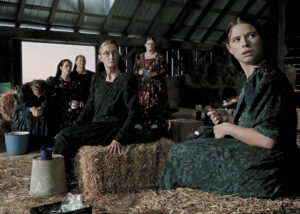The best moment of my Sunday school teaching career happened when the children were nearly stumped by a question. My co-teacher began the Bible lesson by asking the 8- to 10-year-olds, “What is sin?” whereupon a rare and rich silence descended as the children contemplated her question. The silence was broken by a spiritually precocious boy who offered, “Isn’t that where we’re forgiven?”
When we want to talk about sin, I think forgiveness is a pretty good place to begin, although that is not usually the case. This column, for the better part of the past year, has been devoted to the topic of the Seven Deadly Sins and their corresponding virtues. Here I offer a few summary reflections on sin.
Generally speaking, sin is not a pleasant topic, nor a welcome one. Many of us have relegated discussion of sin into the category of “destructive things the church used to do that should be left behind.” On occasion, I have recoiled from my self-appointed task of learning more about the particular sin under discussion, as I engaged with the flaws and evils of humanity. Such shadows could and did awaken feelings of disquiet and shame, and troubled my spirit. Like Paul, I see the value in attempting to direct my thoughts toward what is true and honourable and pleasing and just (Philippians 4:8).
Unfortunately, the strategy of avoidance hasn’t made sin any less real or reduced our proclivity to sin. It has resulted in the unfortunate consequence that we have little capacity to identify sin, and to respond to it with clarity and firmness. Many of us have lost the language to speak of sin; we’re confused about what sin is and what it isn’t. One reader wondered why certain sins get on the list and others are left off.
Another rightly protested about a column on sloth, with its characteristics uncomfortably similar to the symptoms of depression. Certainly I never intended to link the two, or to classify depression as sin. As we have become more knowledgeable, we have necessarily redefined some things as mental health issues, rather than moral ones. We avoid discussions of sin in part because we want to avoid harsh, unkind judgments.
Still, the truth is that there is sin in the world and there is sin in us, and it’s always necessary to pay attention to what is true. Every pastor knows that sin is real and must be addressed. All Christians throw themselves on God’s grace for the forgiveness of sins, even if there are many different understandings of what that means. Parents worth their salt know they must nurture morality in their progeny, and that necessarily involves some kind of engagement with vices and virtues.
My working definition of sin is drawn from one of its meanings in Hebrew, that being “to miss the mark.” If the mark is what God intends for us—our true and beautifully redeemed selves shining like a perfectly centred arrow in the bullseye of a target—then sin is coming short of that mark. Such a definition might be at least a starting point.
This summer’s movie, Calvary, returned to my Sunday school moment in its own way, when the heavily burdened and faithful priest says, “I think the church has said way too much about sin, and not nearly enough about virtues.” When asked what virtues he would hold up, he says, “I think we could start with forgiveness.” Isn’t that what God does?
Melissa Miller (familyties@mymts.net) lives in Winnipeg. She is wrapped in the family ties of daughter, sister, wife, mother, friend and pastor.
See Melissa’s other columns in her series on the deadly sins:
The deadly sin of gluttony
The deadly sin of sloth
The deadly sin of wrath
The deadly sin of lust
The deadly sin of envy
The deadly sin of greed
The deadly sin of pride








Leave a Reply
You must be logged in to post a comment.